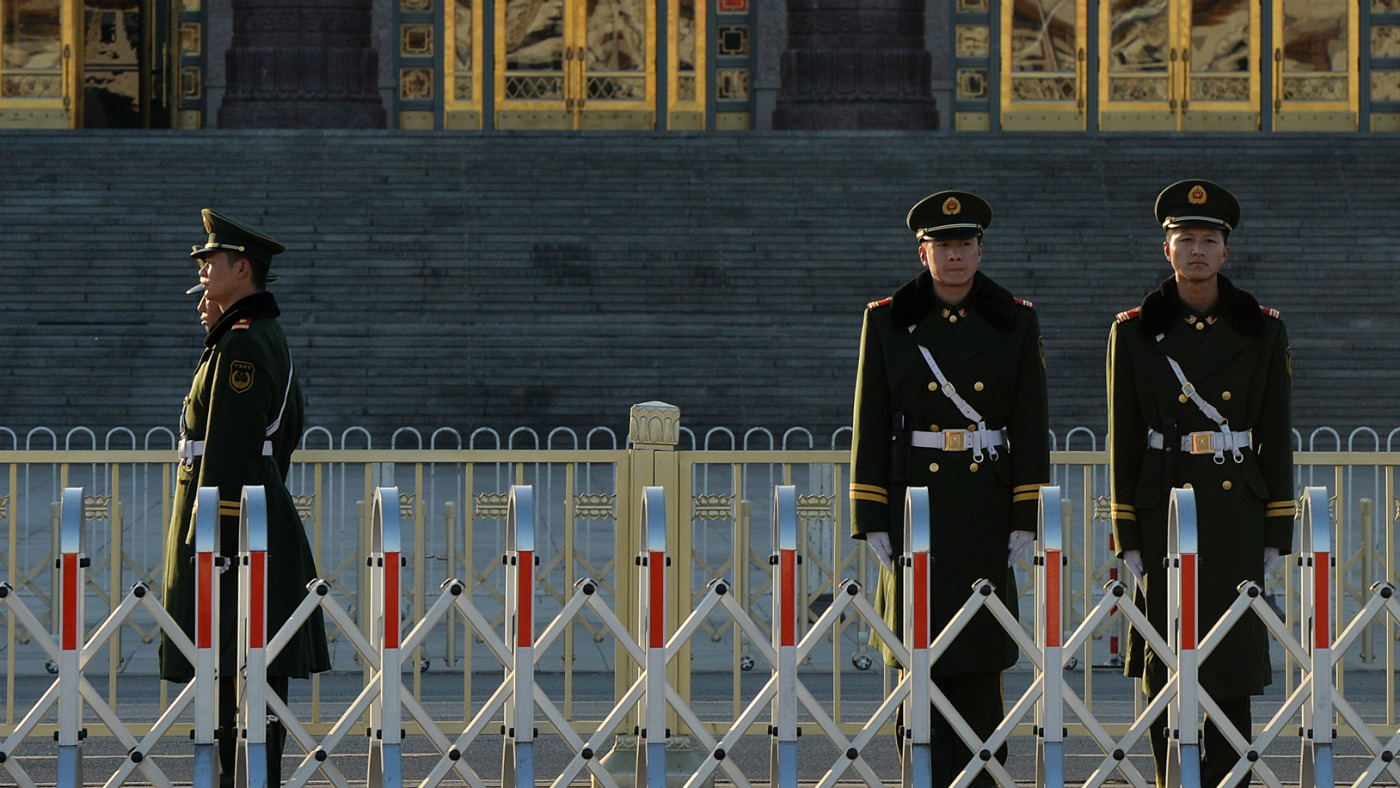Chinese anthem protesters now face jail
New law is part of President Xi Jinping's push to silence political dissent, say observers

A free daily email with the biggest news stories of the day – and the best features from TheWeek.com
You are now subscribed
Your newsletter sign-up was successful
Donald Trump isn’t the only head of state worrying about people not respecting national anthems.
This week China introduced a new law making it illegal to “disrespect” the Chinese anthem - punishable with a sentence of two weeks in prison.
The new legislation, which was formally introduced in early September, aims to protect “the dignity of the national anthem” and help “promote patriotism and nurture socialist core values.”
The Week
Escape your echo chamber. Get the facts behind the news, plus analysis from multiple perspectives.

Sign up for The Week's Free Newsletters
From our morning news briefing to a weekly Good News Newsletter, get the best of The Week delivered directly to your inbox.
From our morning news briefing to a weekly Good News Newsletter, get the best of The Week delivered directly to your inbox.
The law also makes it an offence to change the lyrics of the song or to play it at inappropriate occasions such as a funeral or as background music to a television advert.
There are concerns over whether the new law could be made to apply to the territories of Macau and Hong Kong - with residents in the latter already voicing disapproval with the national anthem at sporting events. During a recent football match between Hong Kong and China, “Hong Kong supporters booed during the playing of the Chinese national anthem,” says the English-language Chinese blog Shanghaiist.
The new law “is widely seen as an attempt by the Communist top brass to boost patriotism and party loyalty,” says The Times.
Since President Xi Jinping came to power in 2012 “patriotic education in schools and universities has been ramped up in an effort to silence political dissent”, adds the paper.
A free daily email with the biggest news stories of the day – and the best features from TheWeek.com
While this new law “may sound like something Trump would like to see instituted in the US, he would not agree with the opinions of all Chinese legislators on proper anthem etiquette,” says Shanghaiist.
In June, one government official proposed a resolution that would ban placing a hand over the heart during China's national anthem, arguing that the gesture was “an American tradition that has no place in China”.
“We should follow Chinese manners and Chinese rules,” the delegate said, proposing to add a clause to the draft law which would ban any gestures “foreign, religious or self-made” during the anthem.
-
 ‘Poor time management isn’t just an inconvenience’
‘Poor time management isn’t just an inconvenience’Instant Opinion Opinion, comment and editorials of the day
-
 Bad Bunny’s Super Bowl: A win for unity
Bad Bunny’s Super Bowl: A win for unityFeature The global superstar's halftime show was a celebration for everyone to enjoy
-
 Book reviews: ‘Bonfire of the Murdochs’ and ‘The Typewriter and the Guillotine’
Book reviews: ‘Bonfire of the Murdochs’ and ‘The Typewriter and the Guillotine’Feature New insights into the Murdoch family’s turmoil and a renowned journalist’s time in pre-World War II Paris
-
 Will increasing tensions with Iran boil over into war?
Will increasing tensions with Iran boil over into war?Today’s Big Question President Donald Trump has recently been threatening the country
-
 Corruption: The spy sheikh and the president
Corruption: The spy sheikh and the presidentFeature Trump is at the center of another scandal
-
 Rubio boosts Orbán ahead of Hungary election
Rubio boosts Orbán ahead of Hungary electionSpeed Read Far-right nationalist Prime Minister Viktor Orbán is facing a tough re-election fight after many years in power
-
 Greenland’s capital becomes ground zero for the country’s diplomatic straits
Greenland’s capital becomes ground zero for the country’s diplomatic straitsIN THE SPOTLIGHT A flurry of new consular activity in Nuuk shows how important Greenland has become to Europeans’ anxiety about American imperialism
-
 Epstein files topple law CEO, roil UK government
Epstein files topple law CEO, roil UK governmentSpeed Read Peter Mandelson, Britain’s former ambassador to the US, is caught up in the scandal
-
 Iran and US prepare to meet after skirmishes
Iran and US prepare to meet after skirmishesSpeed Read The incident comes amid heightened tensions in the Middle East
-
 Which way will Trump go on Iran?
Which way will Trump go on Iran?Today’s Big Question Diplomatic talks set to be held in Turkey on Friday, but failure to reach an agreement could have ‘terrible’ global ramifications
-
 Israel retrieves final hostage’s body from Gaza
Israel retrieves final hostage’s body from GazaSpeed Read The 24-year-old police officer was killed during the initial Hamas attack